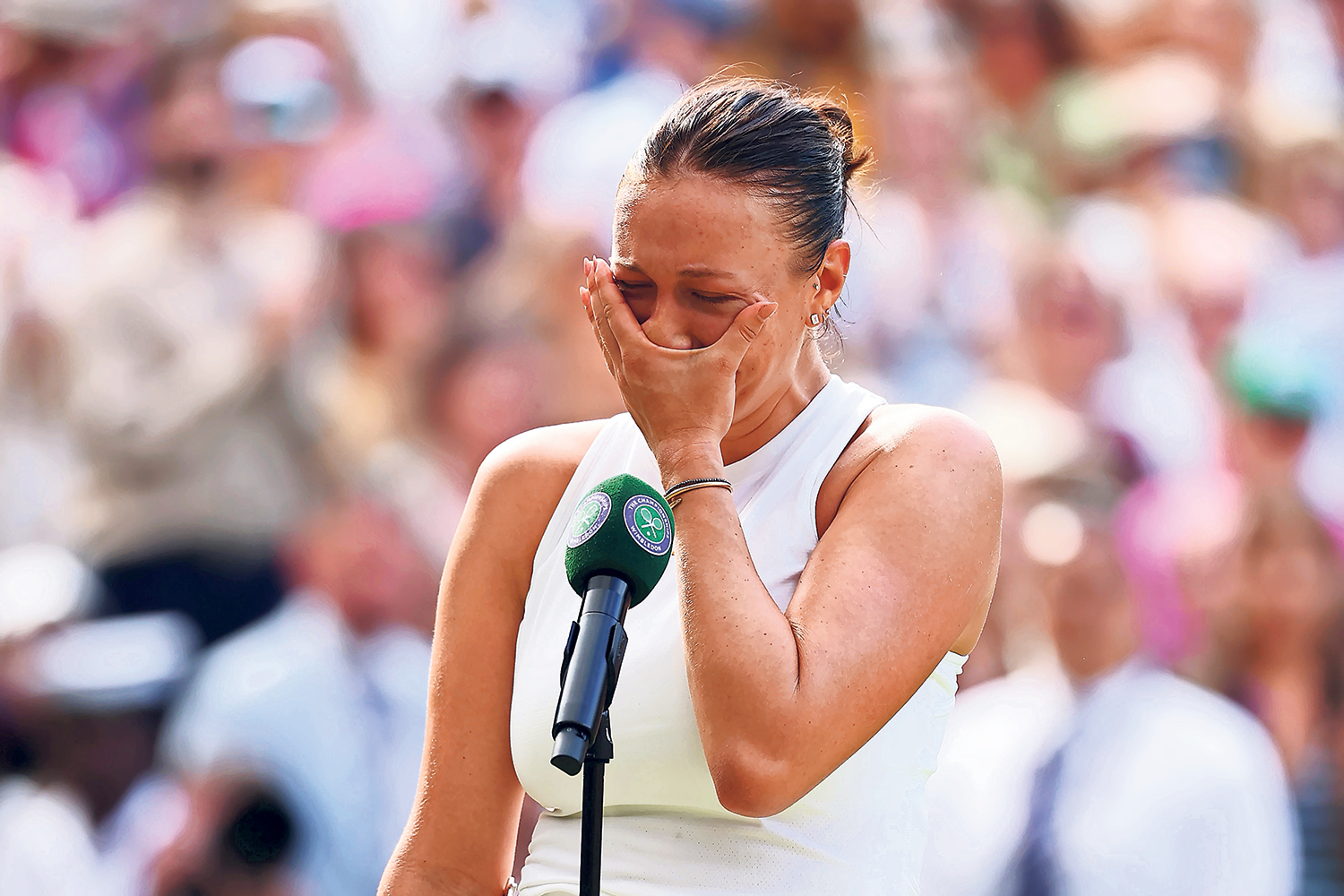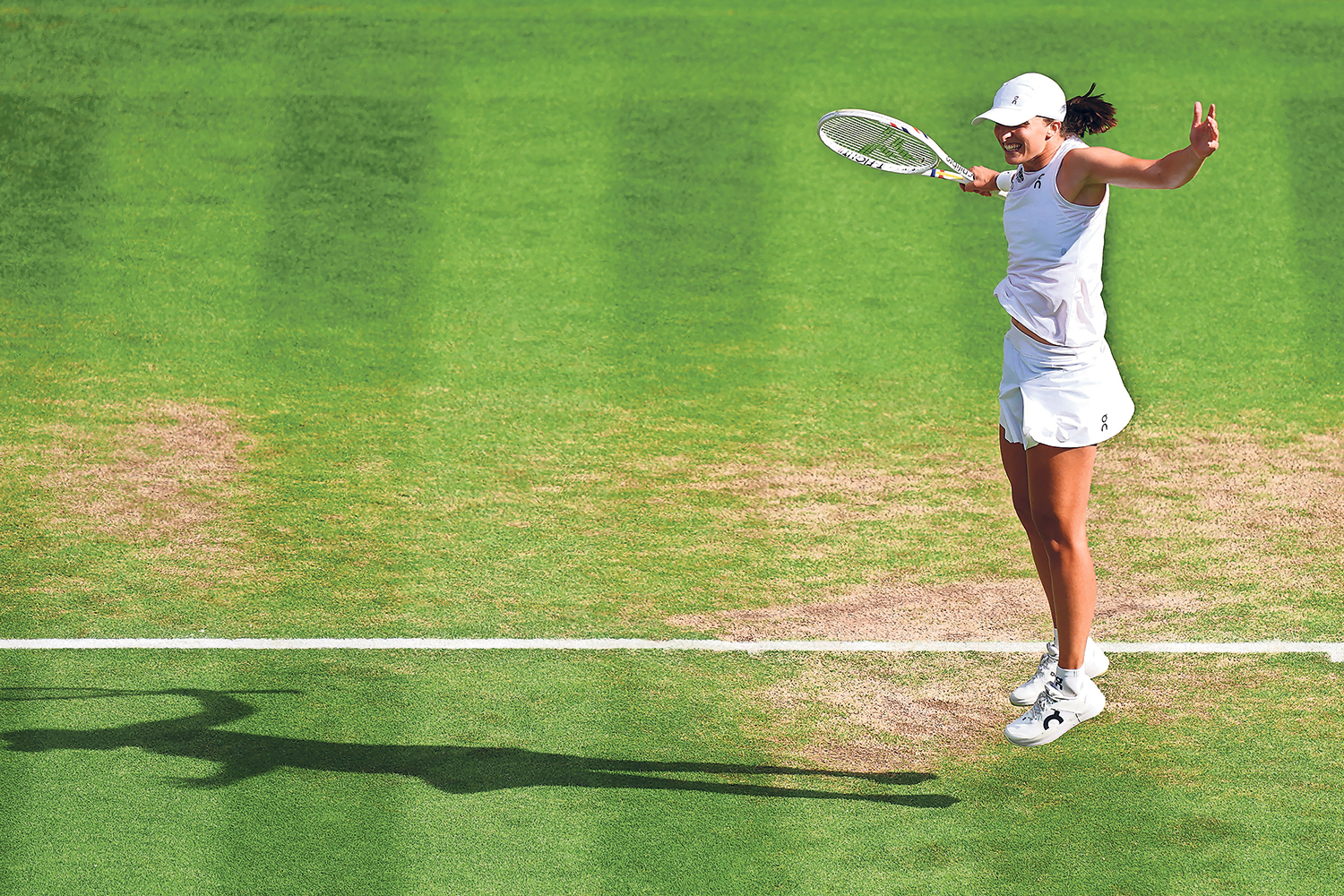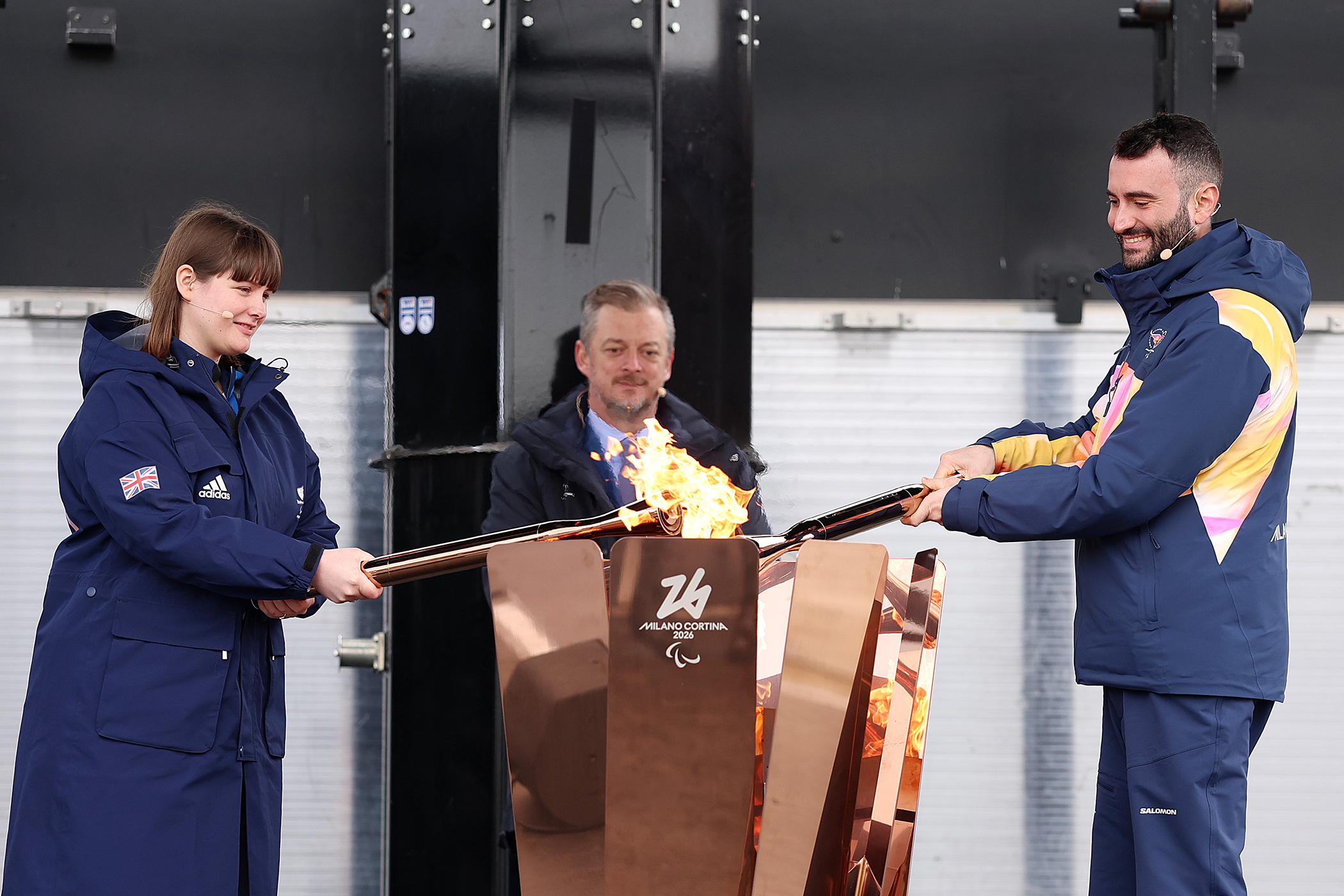Well, she was lucky to get love. So are we all, I suppose but this is tennis where love has a second meaning. Amanda Anisimova of the United States stepped on to Centre Court with all the hope in the world, but Iga Swiatek was the living spirit of devastation. She won 6-0 6-0 in less than an hour and became the first Polish player to win the Wimbledon singles title.
“Losing sucks, you know?” The words of Aryna Sabalenka after she lost a tough semi-final to Anisimova on Thursday. Warming to her theme, she continued: “You always feel like you want to die, you don’t want to exist, and this is the end of your life.”
Perhaps tennis at this lofty level is impossible for those who don’t feel like that, at least for a while after a defeat. And perhaps the art of victory lies in forgetting how much defeat hurts.It has always seemed to me that in the women’s singles final — more so than any other sporting event in the year — the gain to the winner is a good deal less than the loss to the loser.
As Anisimova and Swiatek walked out there, we all knew that one or the other was going to suffer the pain of losing a Wimbledon final. They began their warm-up at 4pm when it always used to be 2pm: clearly it’s more important to suck up to American television than to please British tennis supporters.
But it started at last: and more or less at once Anisimova wished that it hadn’t. It was certainly not for the squeamish. The crowd were mostly for Anisimova – won over by her past troubles and the way she has dealt with them. But she was jumpy and uneasy, her first serve went missing and her second lost all hint of reliability. In rallies she was either tentative or over-hitting.
It was impossible not to feel sorry for her. Still. Swiatek managed it. One of the traits of the champion is an indifference to the sufferings of the opponent. If Swiatek has any ruth she only uses it off-duty.Not all Anisimova’s woes were self-induced. Swiatek was fast, accurate, lethal. She showed not a hint of weakness, gave not the tiniest hint of hope to her opponent.
She didn’t even let up between points, shadow-fencing with vicious knife-fighter jabs of her racket. Anisimova had occasional moments when you remembered that her backhand was probably the most searching of the entire championship. But even when it won her a point, there was Swiatek crowding her on the next, hustling her into the next mistake, making sure that for her opponent this match was one extended continuum of error. Swiatek’s play had occasional flashes of genius, but these were mere embellishments.
This was the shark smelling blood in the water and doing what comes naturally to sharks. At the end the pair embraced: and perhaps there was even some kind of apology. When all was settled, it might even have had a hint of sincerity. Sorry for making you wish you were dead but — in the immortal words of Frank Bruno — that’s cricket old boy.
Disappointment is part of the routine of sport even for the best, and both these women reached the final after suffering the cruel realisation that sport is not as lovely as it had once seemed. Anisimova found being a teenage prodigy a relatively straightforward business: it was being a grown-up that was tough. As for Swiatek, she proved herself a champion — but not as great a champion as she wanted to be. There are all kinds of disappointment. Anisimova’s parents moved from Russia to the United States before she was born, the event taking place in New Jersey 23 years ago.
She took up tennis because (a) she wanted to be like her sister and (b) she wanted to beat her sister. And it all went frightfully well: she won her first title at 17, the youngest to do so since Serena Williams had 20 years earlier. Anisimova reached the semi-final of the French Open, and was officially the next big thing. So how do you cope with tennis when tennis becomes unbearable? If you stick with it, it will get worse, if you walk away from it, you might never come back – and besides, all those other next big things will have overtaken you.
Newsletters
Choose the newsletters you want to receive
View more
For information about how The Observer protects your data, read our Privacy Policy
Anisimova tried the usual thing: technically known as keep buggering on: “Pushing and pushing as if I’m not a human being.” Last year she failed to qualify for the main tournament at Wimbledon. So, not before time, she took a break. That was in May last year.
It was the shark smelling blood in the water and doing what comes naturally
It was the shark smelling blood in the water and doing what comes naturally
She spent some time as a human being. Took holidays, hung out with friends and family, went to college in person for a term, rather than online. She said it was to protect her mental health: it’s great that this sort of stuff is OK these days.“A lot of people told me that you would never make it to the top again if you take so much time away from the game. “Just me being able to prove that you can get back to the top if you prioritise yourself has been incredible special to me.” She came back in January.

There is a beauty in this story, and with it the feeling that somehow Anisimova deserved to win. It would have been poetic justice, perhaps — but you need an opponent in a poetic mood. Yesterday, Swiatek was all prose. Anisimova would have swapped all this classic outpouring of Centre Court love — the other kind of love — for Swiatek’s experience of disappointment.
Swiatek had won five grand-slam singles titles before this, four of them in Paris in the course of five years. Perhaps it was her failure to win the gold medal at the Paris Olympic Games last year that triggered things. Or maybe it was her enforced month out for a technical doping violation; a contaminated sleep medication. She failed to retain her clay-court titles in Madrid and Rome and lost in the semis is Paris.
It was, by a champion’s standards, a rotten year. Might as well give up.But quite unexpectedly she arrived at Wimbledon sunny and cheerful. She started playing as if tennis was fun again and grass was what she had always wanted. She went straight from Paris to Mallorca and trained on grass, working on such mysteries as “how I should stop before hitting the ball.” Mallorca wasn’t so much a break as a change of rhythm. The resulting good cheer has brought her the grass-court form of her life, especially as the sun in this sweltering fortnight has baked the grass courts until they are almost as bouncy as clay.
Swiatek set disappointment aside and went on to triumph — accepting all kind donations from opponents as she went. She was superb and would probably have taken Anisimova’s best tennis in her stride. There’s a story told about Chris Evert in her junior days; Evert who went on to win 18 slams.
Her beaten opponent observed very loudly in the locker-room: “Thank God my happiness doesn’t depend on winning a tennis match.” Evert replied: “Thank God mine does.”
Photographs by Ben Whitley/PA Wire and Julian Finney/Getty Images



